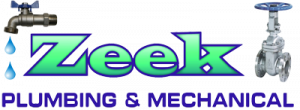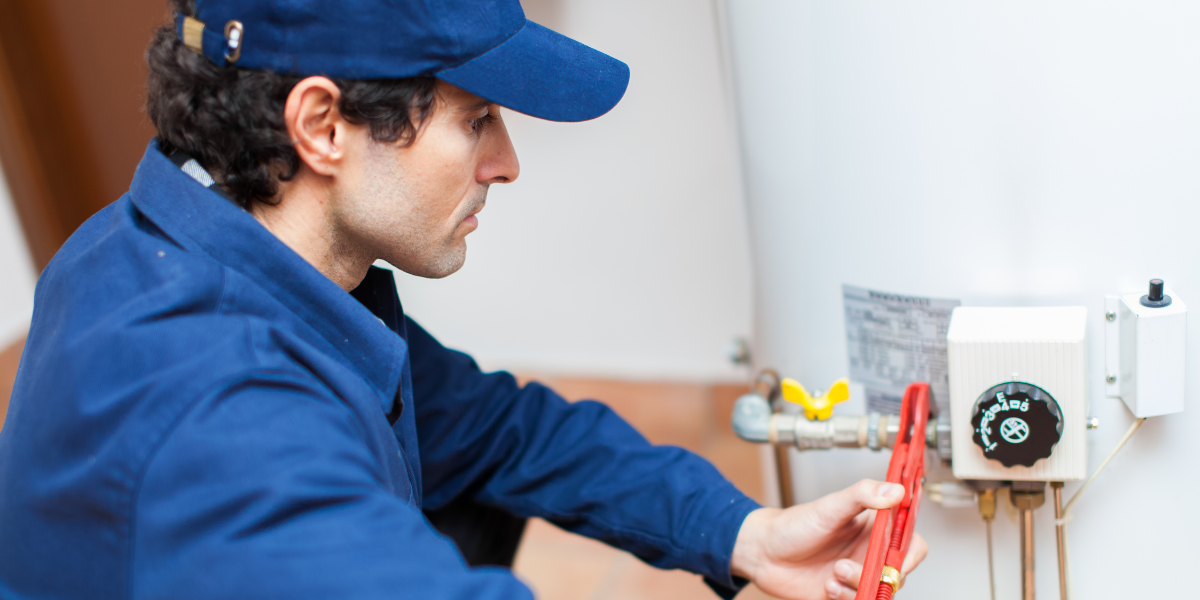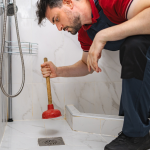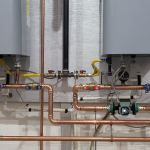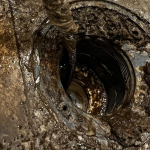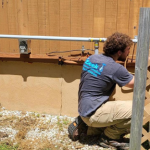Water heaters keep our homes running smoothly. From hot showers to clean dishes, they provide comfort and convenience we often take for granted. But when a unit breaks down, it can cause frustration, unexpected costs, and even property damage. In Northern New Jersey, water heaters face specific challenges that increase the risk of failure.
This guide explains why these systems break down, what signs to look for, and how to keep yours running efficiently. You’ll also find practical advice on replacement and maintenance tailored to homes and buildings in NJ.
Top Reasons Why Water Heaters Fail in Northern New Jersey
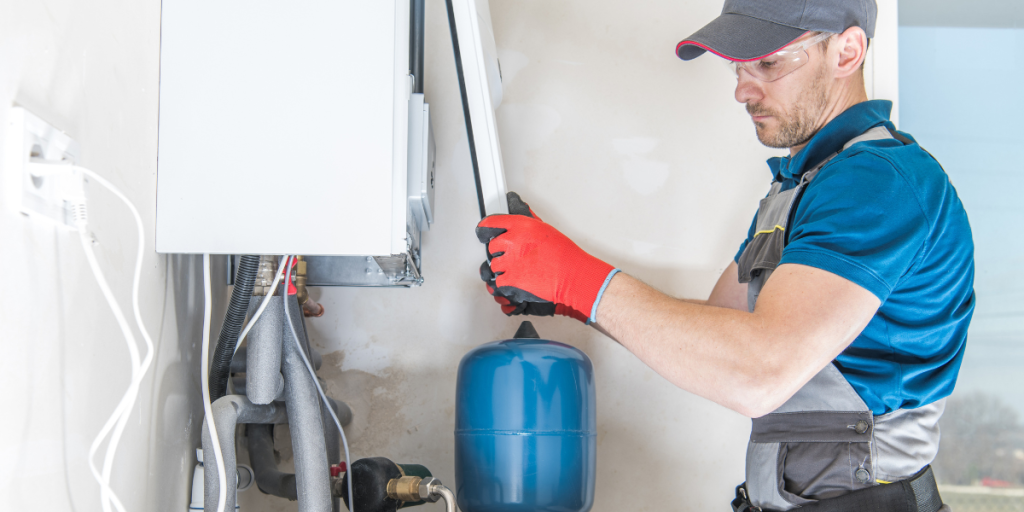
Northern NJ homes deal with factors that put extra strain on water heaters. Hard water, aging infrastructure, and cold winters create ideal conditions for breakdowns. Understanding the causes helps you avoid problems before they start.
Sediment and Mineral Buildup (Hard Water)
Hard water is one of the leading water heater failure in New Jersey. It carries calcium and magnesium that settle inside your tank. Over time, this sediment collects at the bottom and forms a thick layer.
This buildup makes it more difficult for the heating element to heat the water, forcing the unit to put in extra effort. That leads to overheating and wear. To avoid this:
- Install a water softener
- Flush the tank once a year
- Examine the anode rod annually and replace it if corroded
Corrosion and Rust
Tank corrosion is a common reason why water heaters fail. The inner tank is constantly exposed to water, and when the anode rod is depleted, rust starts to form. Hard water speeds up this process.
If your hot water has a rusty tint or the tank shows signs of corrosion, don’t ignore it. Prevent this issue by:
- Testing your water quality
- Replacing the anode rod before it wears out
- Choosing corrosion-resistant materials when possible
High Water Pressure
Pressure above 80 psi puts stress on valves, fittings, and the tank itself. Many homes in NJ operate above this safe range without realizing it.
Unchecked pressure is a silent contributor to water heater failure. You can protect your system by:
- Installing a pressure-reducing valve
- Using a gauge to check your water pressure regularly
- Ensuring your expansion tank is correctly sized
Age and Wear
Most water heaters last between 8 and 12 years. As they age, they lose efficiency and become prone to leaks. Older systems often require frequent repairs and eventually stop working altogether.
If your unit is approaching this range, consider preparing for a water heater replacement in NJ. A new system will run more efficiently and reduce the risk of failure.
Faulty Thermostat or Heating Element
The thermostat and heating element control the temperature of your water. When either fails, your water may come out lukewarm, too hot, or fluctuate between the two.
These parts are replaceable, but early diagnosis is essential. If you’re experiencing inconsistent temperatures, contact a plumber for water heater issues before the problem worsens.
Improper Installation
Even a high-quality system can fail early if it’s not installed properly. Mistakes like loose connections, undersized units, or incorrect venting create long-term problems.
Avoid these pitfalls by working with a licensed plumber familiar with NJ building codes. Proper installation reduces the risk of water heater failure from the start.
Neglected Maintenance
Skipping routine care leads to many preventable problems. Sediment builds up, valves wear out, and corrosion sets in.
Annual water heater maintenance services can catch issues early and extend your unit’s life. Regular care ensures that your system operates smoothly and efficiently.
Leaks from Valves or Connections
Leaks around the tank often come from the relief valve, drain valve, or water line connections. These leaks may start small but worsen over time.
Inspect your unit regularly for moisture or rust around fittings. If you see signs of leaking, call a plumber for water heater issues to address them quickly.
Key Signs of a Failing Water Heater
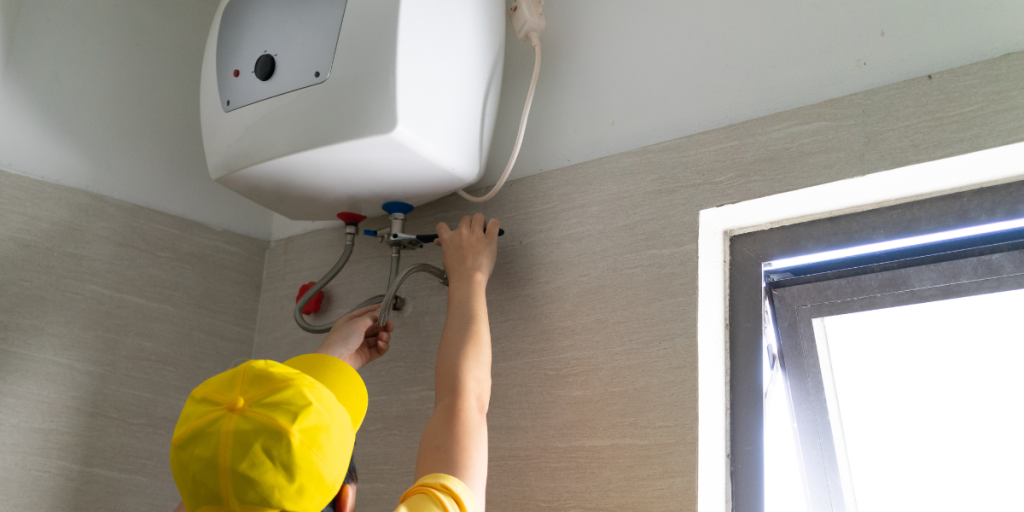
Early detection is key to avoiding system breakdowns. Noticing the signs that your water heater is failing gives you a chance to act before you end up without hot water or face a big repair bill.
Inconsistent or Lukewarm Water
Hot water that suddenly turns lukewarm or fluctuates in temperature often signals trouble. There could be an issue with the thermostat or the heating element.
If these issues persist, your water heater may be on its last legs. Prompt inspection helps avoid further complications.
Strange Noises (Rumbling, Banging)
If your water heater is making those annoying banging or popping noises, it’s probably because of sediment buildup. Hardened deposits trap water beneath them, which boils and causes rumbling sounds.
This noise is a warning that your tank needs attention. Flushing it out can fix the problem and help avoid any damage.
Discolored or Rusty Water
Water with a brown or orange tint usually means rust inside the tank. If it only occurs with hot water, it’s a sign the water heater is failing.
This often points to corrosion, especially if the anode rod hasn’t been replaced in years. Don’t delay in addressing this issue.
Visible Leaks or Moisture Around the Unit
Water near the base of your heater may come from loose fittings or a cracked tank. Even small leaks can cause damage to flooring and drywall.
Call a plumber for water heater issues right away. Addressing leaks early can prevent complete tank failure.
Spike in Utility Bills
A surprising jump in your energy bills without any obvious reason could be linked to an inefficient heater. Sediment buildup or failing parts can force the unit to work harder.
Monitoring your bills helps you catch performance drops early. Rising costs are often one of the first signs of a failing water heater.
How to Prevent Water Heater Issues
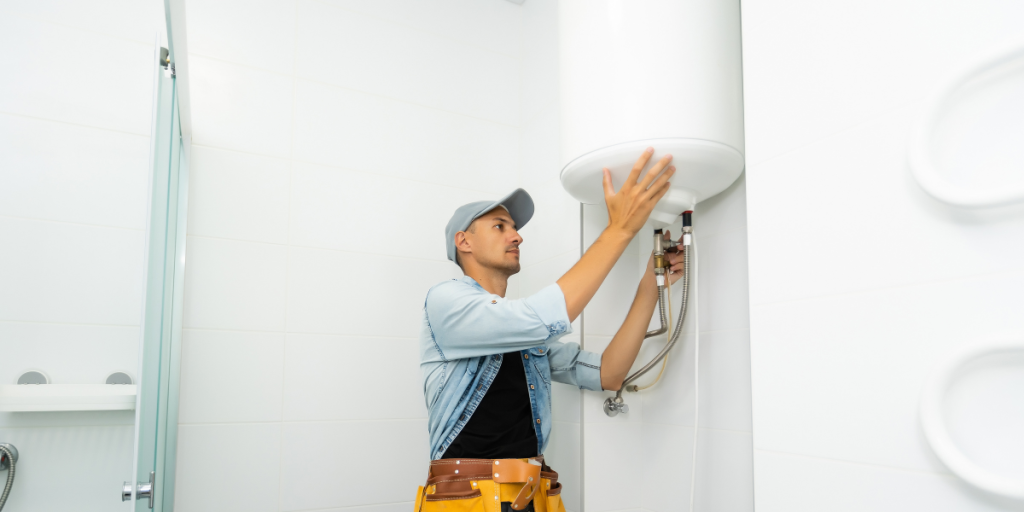
Most water heater problems can be avoided with consistent care. Regular maintenance and small upgrades can extend your unit’s life and improve efficiency.
Schedule Annual Professional Maintenance
To ensure your water heater runs smoothly, it’s important to perform routine maintenance. This typically involves flushing the tank, examining the anode rod, and testing the safety valves. These checks prevent common issues and improve performance.
Working with a trusted technician ensures problems are caught early, saving time and money in the long run.
Flush the Tank Yourself (or with a Pro)
In NJ, hard water leads to fast sediment buildup. Flushing the tank removes minerals that collect at the bottom and impact heating.
If you’re comfortable with basic plumbing, you can do this yourself. Otherwise, have a professional perform the task as part of annual service.
Inspect the Anode Rod
The anode rod is like a shield for the tank, keeping it safe from corrosion. Once depleted, the tank begins to rust from the inside out.
Checking and replacing this rod every few years is one of the simplest ways to prevent water heater failure. It’s a small part that does an important job.
Install a Water Softener
A water softener removes minerals that contribute to scale and buildup. It protects your water heater and the rest of your plumbing system.
Homes in Northern NJ benefit greatly from this upgrade, especially if you want to avoid premature failure from hard water damage.
Monitor Water Pressure
High pressure wears down your system over time. It can also lead to leaks and burst fittings.
Use a pressure gauge to monitor levels. If readings are consistently high, install a regulator or expansion tank to keep things under control.
When to Replace Your Water Heater
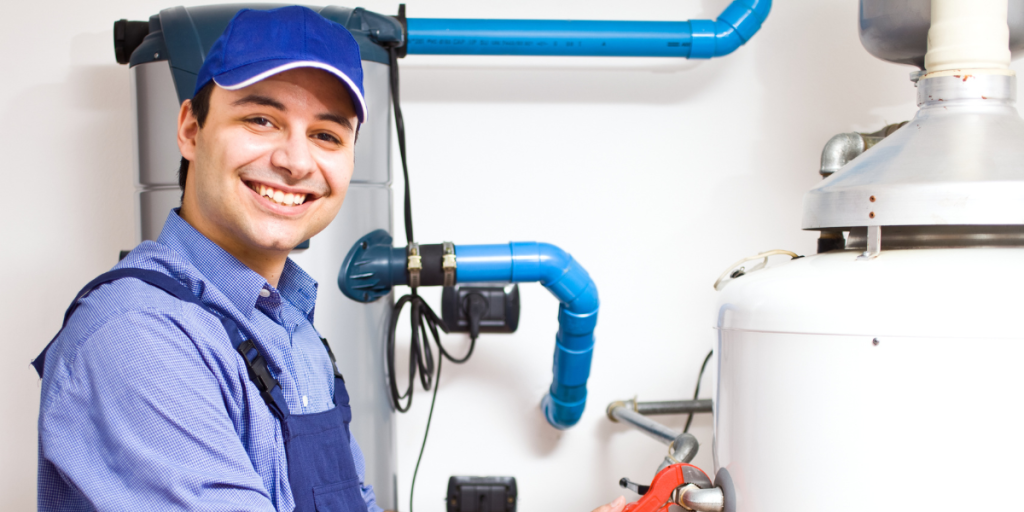
Every system has a lifespan. When repairs become frequent or performance drops, replacement is often the better long-term option.
What Is the Normal Life Expectancy of a Water Heater?
Most units last 8 to 12 years. If your system is within this range, it’s a good idea to plan for water heater replacement in NJ.
New models offer better performance and energy efficiency, reducing operating costs and improving reliability.
Frequent Repairs or Leaks
Ongoing issues cost more than replacing the unit. If you’re dealing with repeated calls to a plumber for water heater issues, a new system may be the smarter investment.
Frequent leaks or worn-out parts are clear signs your current heater is near the end of its useful life.
Insufficient Hot Water for Demand
Growing families or increased home usage can strain your current system. If you constantly run out of hot water, your unit may be undersized.
Upgrading to a bigger tank or a tankless system might just be the solution you need to improve your daily routine and ensure you never run out of hot water.
Energy Efficiency Concerns
Older models use more energy and often lack insulation or updated controls. Replacing your unit can lead to significant savings.
Modern systems are designed with efficiency in mind and may qualify for rebates or tax incentives.
What to Know Before Replacing Your Water Heater
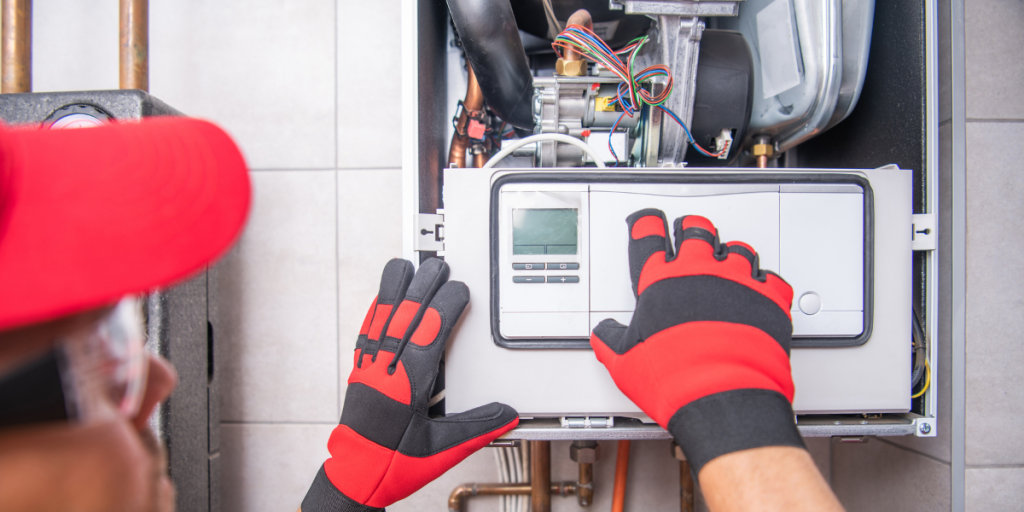
Replacing a water heater is a major decision. It’s important to choose the right system and installer to ensure lasting results.
Size and Capacity Needs
Your household size and water usage should guide your decision. A plumber can evaluate your needs and recommend a system that fits.
Choosing the right size prevents performance issues and helps avoid early water heater failure.
Tank vs. Tankless
Each option has its benefits. Tankless models save space and reduce energy use, while traditional tanks are often more affordable to install.
Consider your space, usage patterns, and budget when making a decision during your water heater replacement in NJ.
Local Building Codes and Permits
Installations must follow local laws. A licensed plumber for water heater issues will make sure your system complies with NJ codes.
Proper permitting protects your warranty and helps avoid complications later on.
Hire a Trusted Local Plumber for Water Heater Issues
Experience with local water quality and climate matters. Choose a professional who knows the region and understands what NJ systems face.
Reading reviews and checking credentials ensures you get reliable service from start to finish.
Why Choose Zeek Plumbing for Your Water Heater Needs
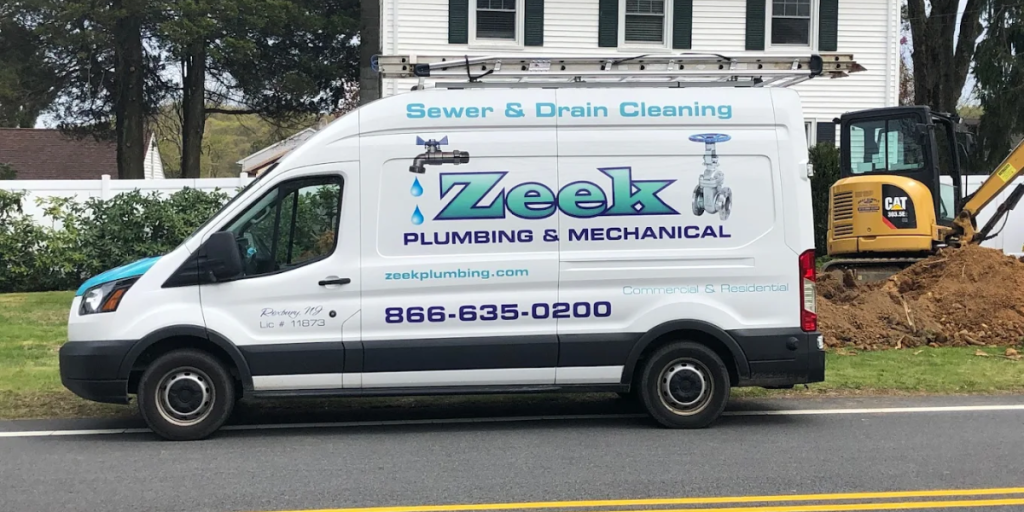
Zeek Plumbing brings experience and local knowledge to every job. Whether you need water heater maintenance services or a full replacement, we deliver reliable solutions that last.
We’ve served Morris County since 2004 and understand the unique challenges water heaters face in this area. Hard water, old pipes, and extreme temperatures are familiar territory for us.
From leaking valves to full system upgrades, we have the tools and expertise to get it done right. We minimize disruptions and make sure your new system performs as expected.
We believe in doing the job right the first time. Our team communicates clearly, shows up on time, and respects your home or property. If you need a plumber for water heater issues, we’re the team you can trust.
We’ve been recognized among the top small businesses in NJ and take pride in the work we do. Our commitment to excellence is evident in every single project we undertake.
Conclusion
Water heaters in Northern New Jersey face unique challenges, from hard water and high pressure to cold temperatures and aging infrastructure. This article outlined the most common reasons why water heaters fail, including sediment buildup, corrosion, and worn-out components. It also reviewed warning signs such as lukewarm water, strange noises, discolored output, and higher utility bills, each pointing to potential system failure.
We covered essential maintenance steps like flushing the tank, checking the anode rod, and managing water pressure to extend the life of your unit. When the time comes to replace your system, understanding size, type, and installation standards can help you make an informed decision.
Keep your home running reliably by staying proactive. Know the warning signs, stick to regular maintenance, and consult a trusted professional when repairs or replacements are needed.
Need expert help? Contact Zeek Plumbing for honest service and reliable solutions tailored to your NJ home. From routine maintenance to full system replacement, we’re here to help.
